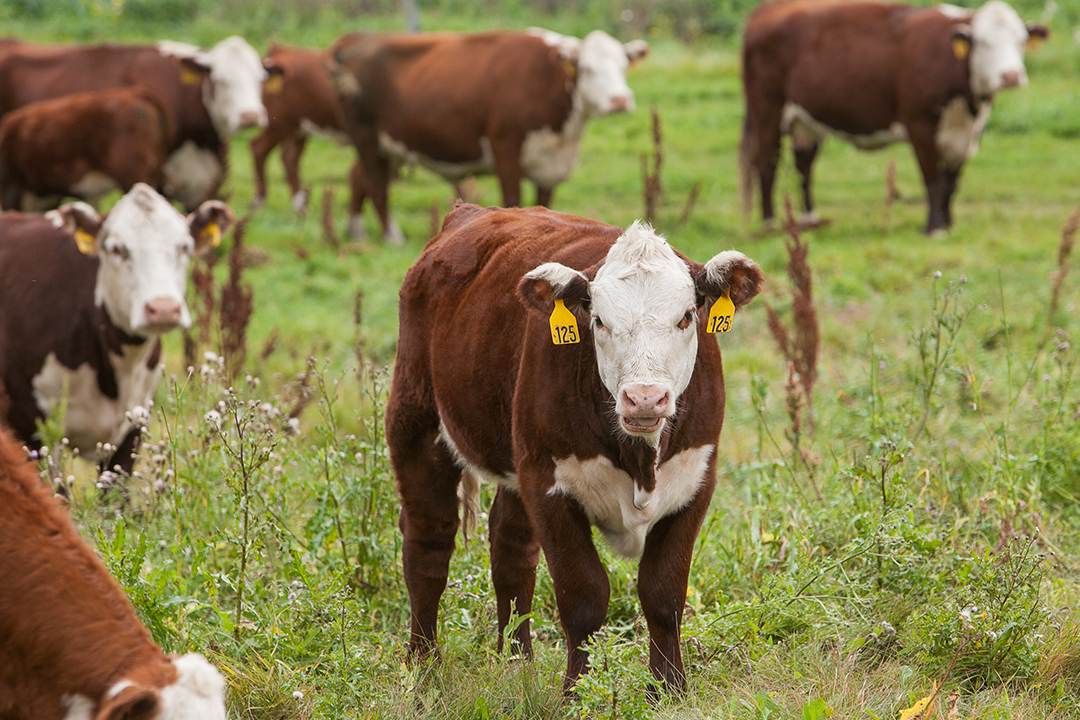
September 2022
Acute bovine pulmonary emphysema (ABPE) or fog fever is a type of pneumonia that’s often diagnosed in cattle that are moved from dry, overgrazed pasture to lush pasture in the fall.
What is 'fog fever'?
Acute bovine pulmonary emphysema (ABPE) or fog fever is a type of pneumonia that’s often diagnosed in cattle that are moved from dry, overgrazed pasture to lush pasture in the fall.
The trigger is tryptophan, a protein found in rich grass. When cattle are exposed to higher tryptophan levels in lush pasture and bacteria in their rumen are not gradually adapted to this protein, it creates a toxin that circulates in the bloodstream, which leads to a severe, untreatable respiratory syndrome.
To prevent fog fever, avoid moving cattle abruptly from dry pasture to lush pasture. Make a more gradual move, supplement the herd’s feed during the transition and, if possible, limit the animals’ grazing time on new pasture.
Click here to read the full Western Producer column written by WCVM researcher Dr. John Campbell.

